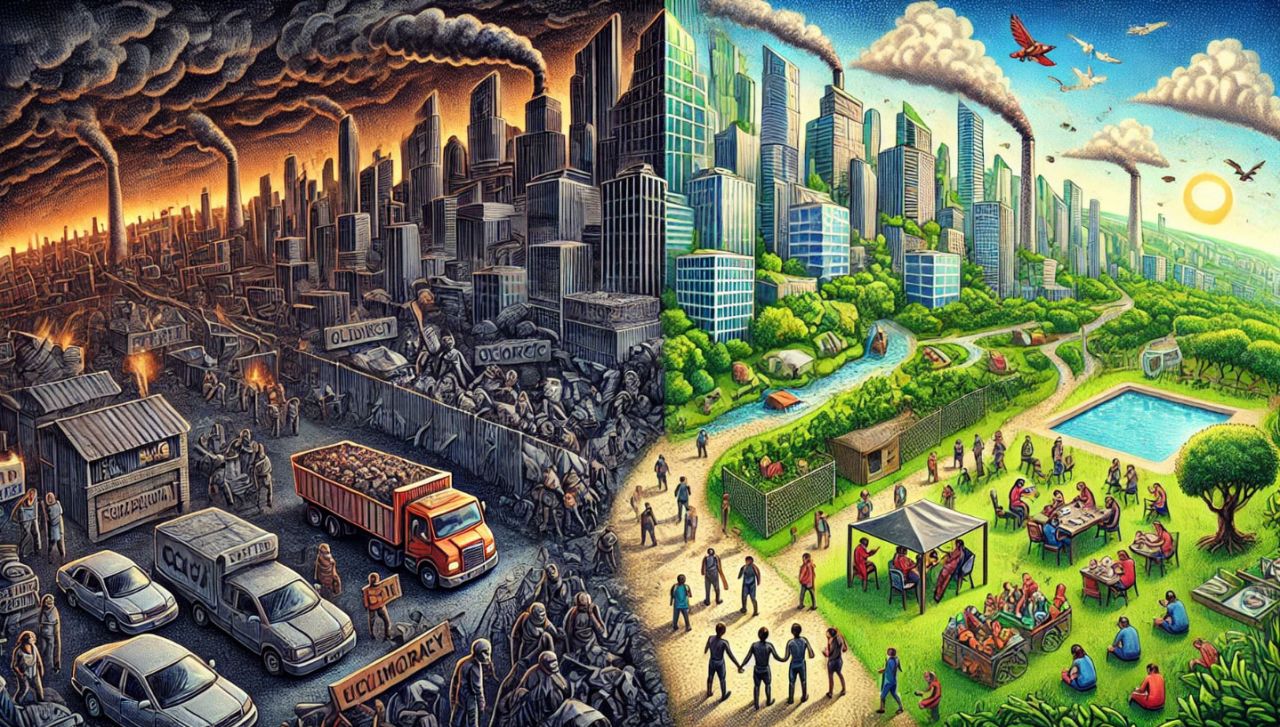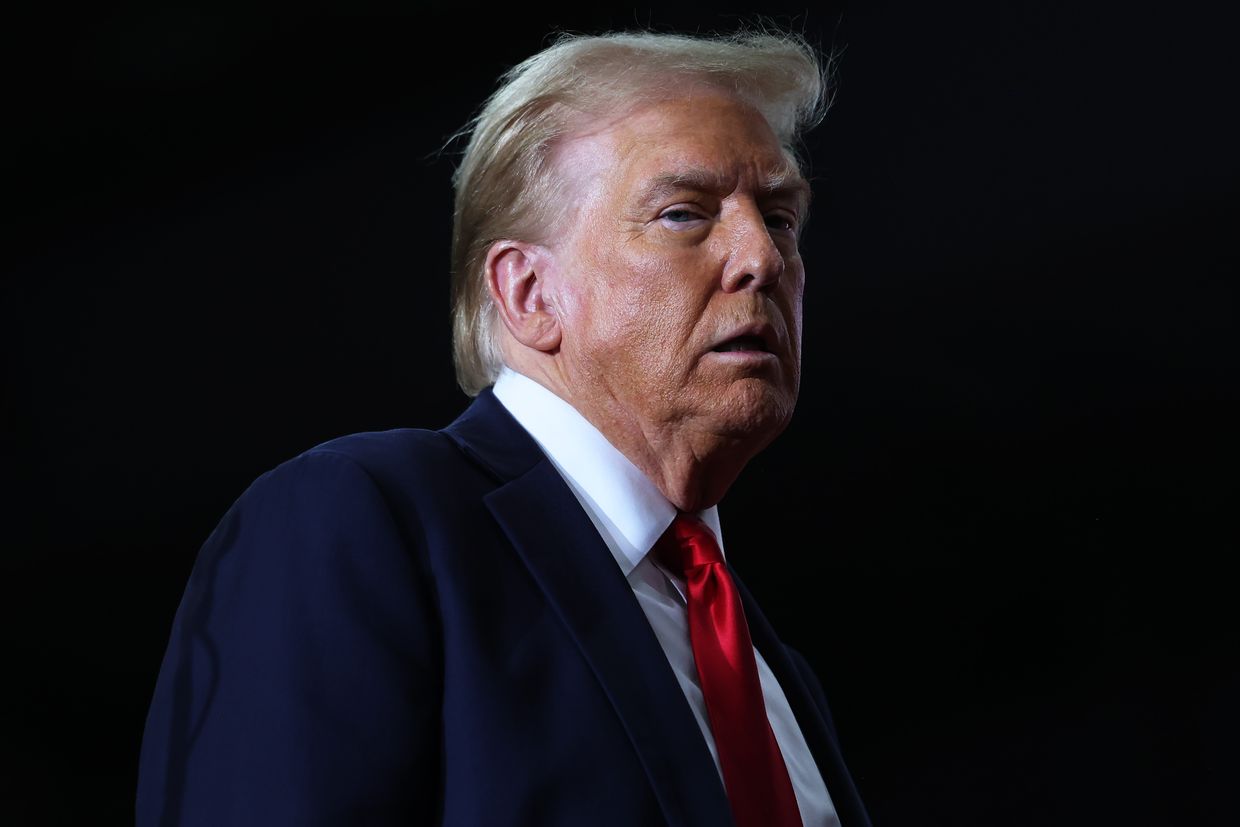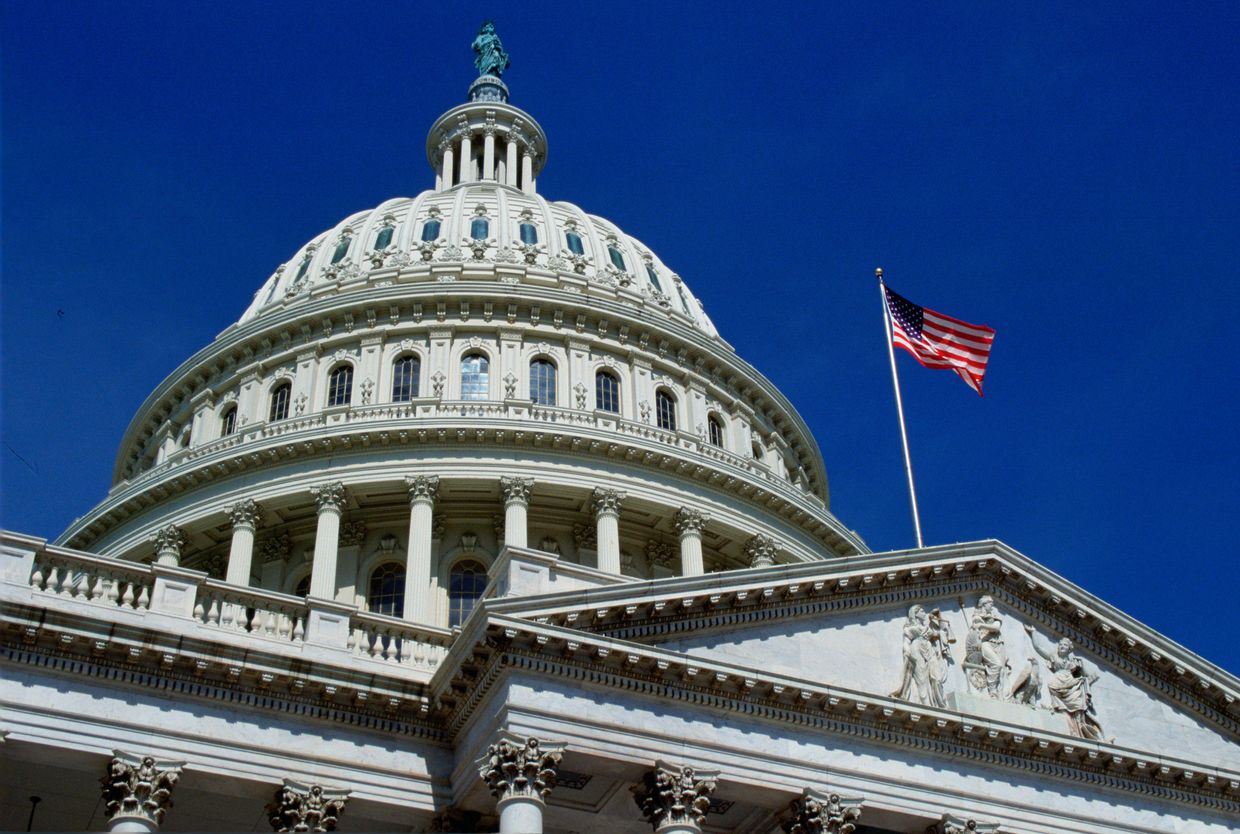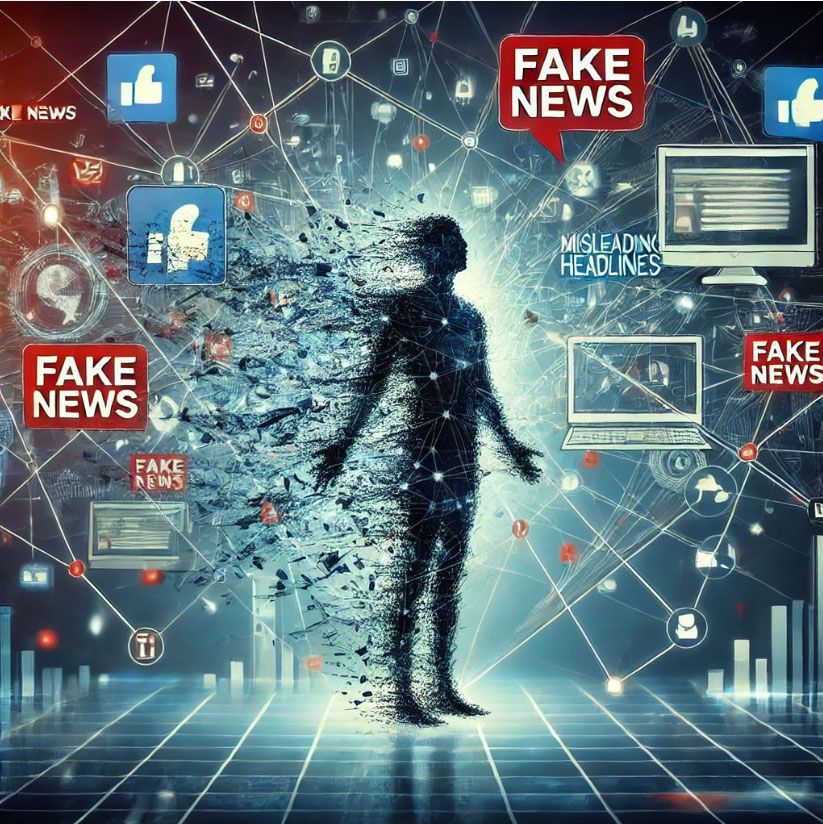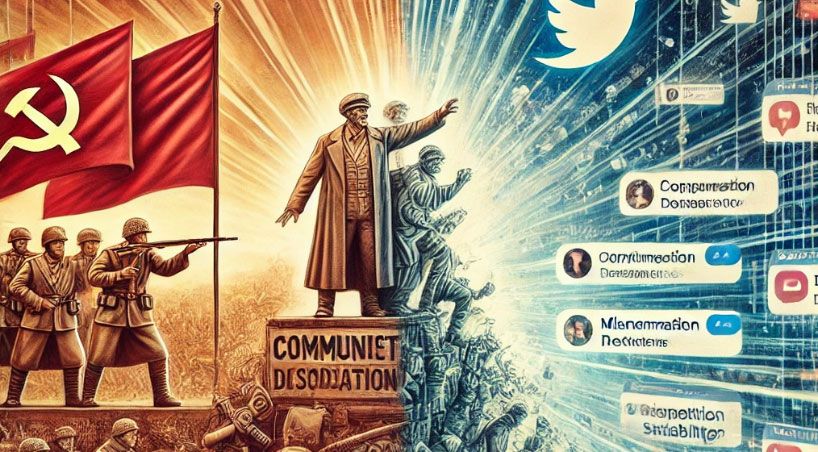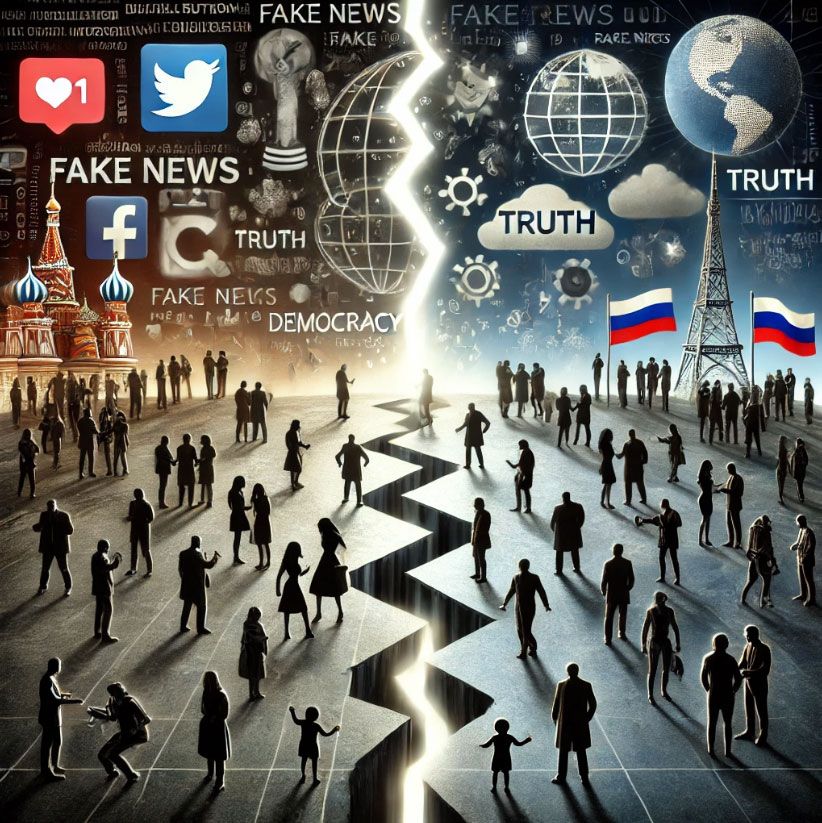1. What Life Looks Like: Oligarchic Dystopia vs. Militant Democracy
Oligarchic Dystopia: Imagine waking up in a society where policies that shape your daily life are dictated by billionaires who live in gated communities, far removed from your struggles.
For example, your local school faces budget cuts while luxury real estate developments receive tax breaks, leaving you feeling powerless to change the system.
In this world, a small group of individuals control political power, the economy, and the media. Laws are designed to protect their interests, not yours.
- Political Reality: Voting feels meaningless because elections are manipulated by money and media controlled by the elite. Protests and criticism are suppressed, often through censorship or harsh crackdowns.
- Daily Life: Public services like healthcare and education are privatized, making them unaffordable for most. Income inequality is extreme, and social mobility is nearly impossible. You may work multiple jobs just to survive, with no safety net if something goes wrong.
- Example: Consider modern Russia, where oligarchs tied to state power amass enormous wealth while ordinary citizens face economic stagnation and limited freedoms. This exemplifies an oligarchic dystopia, where the consolidation of wealth and power undermines the rights of the majority, leaving society stratified and stagnant. Transparency International consistently ranks it low on corruption indices, reflecting systemic inequality.
Militant Democracy: Now imagine a society that actively defends democracy from internal and external threats.
Here, institutions are designed to promote equality, fairness, and inclusion, while safeguarding against authoritarian tendencies.
- Political Reality: Elections are free and fair, with measures to ensure transparency and limit the influence of wealth. Hate speech and extremism are restricted to protect the rights of all citizens.
- Daily Life: Public healthcare, education, and housing are accessible to everyone. Citizens are encouraged to participate in decision-making through town halls, referendums, and other forms of direct democracy.
- Example: Post-World War II Germany implemented “militant democracy” principles to prevent the resurgence of Nazism. For instance, Article 21 of the Basic Law allows for the banning of political parties that seek to undermine democratic values, a measure used to disband extremist groups such as the Socialist Reich Party in the 1950s. Its Basic Law explicitly bans groups that seek to undermine democracy, ensuring a stable and inclusive society.
2. Rights Lost vs. Rights Gained
In an Oligarchic Dystopia:
- Rights Lost:
- Freedom of speech is curtailed through surveillance and censorship.
- Economic inequality leads to reduced access to education, healthcare, and housing.
- Political participation is eroded as money dominates the electoral process.
- How It Affects You:
- Imagine being unable to afford life-saving medicine because pharmaceutical companies prioritize profits over people. Your children’s education depends on your income, not their potential.
In a Militant Democracy:
- Rights Gained:
- Equal access to essential services, including healthcare and education.
- Political rights are protected through laws that prevent voter suppression and undue influence.
- Hate groups and anti-democratic actors are marginalized to safeguard civil liberties for the majority.
- How It Affects You:
- Picture voting in an election where every vote truly counts, knowing your child has access to quality education regardless of your income.
3. Social and Economic Indicators Over Time
Oligarchic Dystopia:
- Income Inequality: The Gini coefficient, a measure of income inequality, spikes as wealth becomes concentrated in fewer hands.
- Healthcare and Education: Privatization leads to declining quality and accessibility for the majority. Life expectancy decreases.
- Historical Example: Feudal Europe was an oligarchic society where wealth and power were concentrated in the hands of landowning elites. Serfs, who made up the majority of the population, were bound to the land with no legal rights or economic mobility. This rigid system ensured that the wealthy landowners maintained their dominance while preventing the majority from accessing education, resources, or opportunities to improve their lives—a stark parallel to the systemic barriers in modern oligarchies. The serfs, who made up the majority, lived in poverty with little hope of upward mobility.
Militant Democracy:
- Income Equality: Progressive taxation and social programs reduce inequality, fostering a thriving middle class.
- Healthcare and Education: Universal access to healthcare and education improves life expectancy and societal well-being.
- Historical Example: The Nordic countries, with their strong welfare states and emphasis on equality, demonstrate how militant democratic principles create resilient societies. Denmark, for example, consistently ranks high on happiness and quality-of-life indices.
4. Goals of Each Society
Oligarchic Dystopia:
- Social Goals:
- Preserve the wealth and power of the elite at all costs.
- Suppress dissent and maintain control through authoritarian measures.
- Maximize short-term profits, often at the expense of the environment and human rights.
Militant Democracy:
- Social Goals:
- Foster equality, inclusion, and democratic resilience.
- Balance individual freedoms with collective security to protect vulnerable groups.
- Prioritize long-term well-being and sustainability over short-term gains.
5. A Vision for a Better World
The stark contrast between these two systems shows that a better world is not only possible but necessary.
Imagine a society where your child’s future isn’t determined by your income, where your voice matters in shaping policy, and where crises are met with collective action rather than despair.
We already have glimpses of this better world in places like Germany and the Nordic countries, where universal healthcare and free or heavily subsidized education ensure that every citizen has access to essential services, regardless of their income. These policies have contributed to higher life satisfaction and economic stability across all social strata.
By learning from their successes and adapting their principles to our unique challenges, we can build a society that works for everyone, not just the privileged few.
Let’s fight for a world where democracy is militant against inequality, corruption, and authoritarianism—a world where hope, fairness, and resilience define our shared future.
A better world is not a dream; it’s a vision we must paint in front of everyone’s eyes.
Together, we can create it.
Sources and Further Reading:
- Transparency International’s Corruption Perception Index: https://www.transparency.org
- "The Nordic Theory of Everything" by Anu Partanen (2016) — Explores the successes of Nordic welfare states.
- German Basic Law on Militant Democracy: https://www.gesetze-im-internet.de/englisch_gg/index.html
- Inequality.org: https://inequality.org


